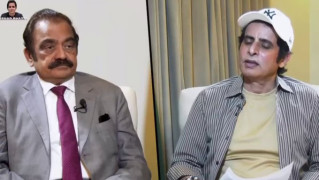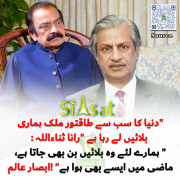You are using an out of date browser. It may not display this or other websites correctly.
You should upgrade or use an alternative browser.
You should upgrade or use an alternative browser.
FALL OF EAST WING December 1971
WHAT IS THE REASON OF UR QUESTION?What is the basic reason Behind the demolition of EAST WING(Bangladesh)?
IS it the mistake of our rulers?
SO WHAT IF IT WAS RULERS OR ARMY,OR SUPER POWERS?
WHAT U GONNA GET OUT OF IT?
CAN U REVERSE THE COURSE OF HISTORY?
THE ANSWER IS NOOOOOOOOOOOOOOOOOOOOOOOOOOOOOOOO
its another attempt to maligan army!!!!!!
Also read Hamoodur Rahman Commission Report .i am preparing an assignment on it this is the reason
The Indo-Pakistani War of 1971 was a military conflict between India and Pakistan. Indian, Bangladeshi and international sources consider the beginning of the war to be Operation Chengiz Khan, Pakistan's December 3, 1971 pre-emptive strike on 11 Indian airbases. Lasting just 13 days it is considered one of the shortest wars in history.
During the course of the war, Indian and Pakistani forces clashed on the eastern and western fronts. The war effectively came to an end after the Eastern Command of the Pakistani Armed Forces signed the Instrument of Surrender, the first and perhaps the only public surrender to date, on December 16, 1971 following which East Pakistan seceded as the independent state of Bangladesh. Around 97,368 West Pakistanis who were in East Pakistan at the time of its independence, including some 79,700 Pakistan Army soldiers and paramilitary personnel and 12,500 civilians, were taken as prisoners of war by India.
The Indo-Pakistani conflict was sparked by the Bangladesh Liberation war, a conflict between the traditionally dominant West Pakistanis and the majority East Pakistanis. The Bangladesh Liberation war ignited after the 1970 Pakistani election, in which the East Pakistani Awami League won 167 of 169 seats in East Pakistan and secured a simple majority in the 313-seat lower house of the Majlis-e-Shoora (Parliament of Pakistan). Awami League leader Sheikh Mujibur Rahman presented the Six Points to the President of Pakistan and claimed the right to form the government. After the leader of the Pakistan Peoples Party, Zulfikar Ali Bhutto, refused to yield the premiership of Pakistan to Mujibur, President Yahya Khan called the military, dominated by West Pakistanis, to suppress dissent.
Mass arrests of dissidents began, and attempts were made to disarm East Pakistani soldiers and police. After several days of strikes and non-cooperation movements, the Pakistani military cracked down on Dhaka on the night of 25 March 1971. The Awami League was banished, and many members fled into exile in India. Mujib was arrested on the night of 25–26 March 1971 at about 1:30 a.m. (as per Radio Pakistan’s news on 29 March 1971) and taken to West Pakistan.
On 27 March 1971, Ziaur Rahman, a rebellious major in the Pakistani army, declared the independence of Bangladesh on behalf of Mujibur. In April, exiled Awami League leaders formed a government-in-exile in Baidyanathtala of Meherpur. The East Pakistan Rifles, a paramilitary force, defected to the rebellion. A guerrilla troop of civilians, the Mukti Bahini, was formed to help the Bangladesh Army.
For Pakistan it was a complete and humiliating defeat, a psychological setback that came from a defeat at the hands of intense rival India. Pakistan lost half its population, significant portion of its economy and its geo-political role in South Asia. Pakistan feared that the two-nation theory was disproved and that the Islamic ideology had proved insufficient to keep Bengalis part of Pakistan. Also, the Pakistani military suffered further humiliation by having their 90,000 prisoners of war (POWs) released by India only after the negotiation and signing of the Simla Agreement on July 2, 1972. In addition to repatriation of prisoners of war also, the agreement established an ongoing structure for the negotiated resolution of future conflicts between India and Pakistan (referring to the remaining western provinces that now composed the totality of Pakistan). In signing the agreement, Pakistan also, by implication, recognized the former East Pakistan as the now independent and sovereign state of Bangladesh.
The Pakistani people were not mentally prepared to accept defeat, as the state-controlled media in West Pakistan had been projecting imaginary victories. When the surrender in East Pakistan was finally announced, people could not come terms with the magnitude of defeat, spontaneous demonstrations and mass protests erupted on the streets of major cities in West Pakistan. Also, referring to the remaining rump Western Pakistan as simply "Pakistan" added to the effect of the defeat as international acceptance of the secession of the eastern half of the country and its creation as the independent state of Bangladesh developed and was given more credence. The cost of the war for Pakistan in monetary and human resources was very high. Demoralized and finding himself unable to control the situation, General Yahya Khan surrendered power to Zulfiqar Ali Bhutto who was sworn-in on 20 December 1971 as President and as the (first civilian) Chief Martial Law Administrator. A new and smaller western-based Pakistan emerged on 16 December 1971.
The loss of East Pakistan shattered the prestige of the Pakistani military. Pakistan lost half its navy, a quarter of its air force and a third of its army. The war also exposed the shortcomings of Pakistan's declared strategic doctrine that the "defence of East Pakistan lay in West Pakistan". Hussain Haqqani, in his book Pakistan: Between Mosque and Military notes,
"Moreover, the army had failed to fulfill its promises of fighting to the last man. The eastern command had laid down arms after losing only 1,300 men in battle. In West Pakistan 1,200 military deaths had accompanied lack luster military performance."
In his book The 1971 Indo-Pak War: A Soldier’s Narrative Pakistani Major General Hakeem Arshad Qureshi a veteran of this conflict noted.
Hamoodur Rahman Commission
In aftermath of war Pakistan Government constituted the Hamoodur Rahman Commission headed by Justice Hamoodur Rahman in 1971 to investigate the political and military causes for defeat and the Bangladesh atrocities during the war. The commission's report was classified and its publication banned by Bhutto as it put the military in poor light, until some parts of the report surfaced in Indian media in 2000.
When it was declassified, it showed many failings from the strategic to the tactical levels. It confirmed the looting, rapes and the killings by the Pakistan Army and their local agents. It lay the blame squarely on Pakistani generals, accusing them of war crimes and neglect of duty. Though no actions were ever taken on commissions findings, the commission had recommended public trial of Pakistan Army generals.
http://en.wikipedia.org/wiki/Indo-Pakistani_War_of_1971
Last edited:
gazoomartian
Prime Minister (20k+ posts)
I only want pure History so that i can present it to my teacher in class with prooofs and refrencess
NOW ARE YOU GETTING IT WHAT I WANT TO SAY!!!!!!!
why didnt you write that in the first place? lol
gazoomartian
Prime Minister (20k+ posts)
i am preparing an assignment on it this is the reason
Zain, to get better answer that would give you input for your assignment you should look for better source. Might wanna start with googles. On here, you will get only our own opinion
What ever you way you choose, dont chose Indian's post or media or you will definitely fail the assignment
gazoomartian
Prime Minister (20k+ posts)
Behari taassub- is the one of causes------
what is behari?
May be he/she wanted to write bahari, but sounded like bihari and you got worried.... :lol:what is behari?
ALI ARYAN
Senator (1k+ posts)
What is the basic reason Behind the demolition of EAST WING(Bangladesh)?
IS it the mistake of our rulers?
Dear If you want to know about real truth about East Pakistan. Just watch live situation of current Balochistan.The Same things were happened in East Pakistan.
ظلم ظلم ہےجب حد سے بڑھتا ہی تو مٹ جاتا ہے.
gazoomartian
Prime Minister (20k+ posts)
What does taassub means?Behari taassub- is the one of causes------
© Copyrights 2008 - 2025 Siasat.pk - All Rights Reserved. Privacy Policy | Disclaimer|




































